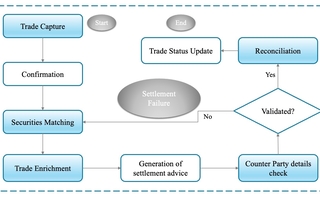Ice exec rejects cloud for critical infrastructure
FIA Boca 2023: SVP Bland “can’t imagine” outsourcing critical infrastructure; DRW’s Wilson warns of concentration risk

A senior Ice executive said his management team had no plans to outsource any critical infrastructure to the cloud, bucking a growing trend in the industry as CME, Eurex and the London Stock Exchange Group (LSEG) add to the roster of rivals striking agreements with cloud providers such as Amazon Web Services (AWS), Google and Microsoft.
“We really want to control that technology, and we actually think we do a very good job of that. I can’t even imagine the thought of outsourcing that critical infrastructure to the cloud,” said Trabue Bland, senior vice-president for Ice’s futures exchanges, at the Futures Industry Association’s (FIA) International Futures Industry Conference in Boca, Florida, earlier today (March 15).
He added that the chief executive officer and chief technology officer were confident the exchange was better placed than large tech providers to manage data-storage projects.
If everybody puts their matching engines into AWS, and AWS goes down, then the global market infrastructure is going to break, and that seems pretty problematic
Don Wilson, DRW
“If you asked either one of them or any of the management team if they felt they could do something better than AWS, they’ll say yes,” he said.
Don Wilson, head of proprietary trading firm DRW, shared concerns around rising concentration risk and the potential for cyber attacks as major exchange groups stepped up their cloud-based initiatives.
“Some people argue that the cloud providers have so much more money to invest in their systems that those systems are going to become more resilient and less prone to cyber attack,” said Wilson, speaking on the same panel as Bland.
“I’m sympathetic to that argument, but the flip side is: if everybody puts their matching engines into AWS, and AWS goes down, then the global market infrastructure is going to break, and that seems pretty problematic.”
The comments follow a spate of cloud projects announced by major exchange groups in recent months.
The Options Clearing Corporation, which cleared 10.4 billion of US options contracts in 2022, received approval from the US Securities and Exchange Commission (SEC) to shift clearing and settlement operations to the cloud last October following a partnership agreement with AWS.
In 2021, CME announced a partnership with Google to move clearing, data and markets operations to the cloud. As part of the deal, Google bought $1 billion worth of shares from CME, which some observers have said help align incentives for both companies.
In December 2022, LSEG announced a 10-year deal with Microsoft for next-generation data and analytics, as well as cloud infrastructure. The agreement saw the US tech giant take a £2.3 billion ($2.8 billion) equity stake in the UK-based exchange provider.
The recent ransomware attack on market middleware provider Ion has reminded market participants of the concentration risks that can build up in critical third parties, and how markets can be affected if they go down.
While CME appears to have committed to a cloud future, chief executive Terry Duffy refused to confirm whether or not the group would close its major data center in Aurora, Illinois, after coming under pressure from proprietary trading firms that invested vast sums for low-latency connection to the center.
On a separate FIA panel on March 14, Duffy said one key driver of the Google deal was to take advantage of the artificial intelligence and machine learning capabilities that the tech provider offers, as well as, “more importantly, cyber security”.
He warned, however, that Google’s systems might not yet be up to the task to “take the beating” that CME took when volumes were elevated, as was the case in the wake of the March 10 failure of Silicon Valley Bank. CME reported its highest daily volume on record on March 14, as over 66 million contracts traded over the Chicago giant’s platforms.
“You have to be really careful about how you want to switch your procedures and protocols into the cloud,” said Duffy.
“Until Google or another provider can replicate what some of our proprietary systems can do today to take the beating … it’s hard to move markets into the cloud.”
Only users who have a paid subscription or are part of a corporate subscription are able to print or copy content.
To access these options, along with all other subscription benefits, please contact info@waterstechnology.com or view our subscription options here: http://subscriptions.waterstechnology.com/subscribe
You are currently unable to print this content. Please contact info@waterstechnology.com to find out more.
You are currently unable to copy this content. Please contact info@waterstechnology.com to find out more.
Copyright Infopro Digital Limited. All rights reserved.
You may share this content using our article tools. Printing this content is for the sole use of the Authorised User (named subscriber), as outlined in our terms and conditions - https://www.infopro-insight.com/terms-conditions/insight-subscriptions/
If you would like to purchase additional rights please email info@waterstechnology.com
Copyright Infopro Digital Limited. All rights reserved.
You may share this content using our article tools. Copying this content is for the sole use of the Authorised User (named subscriber), as outlined in our terms and conditions - https://www.infopro-insight.com/terms-conditions/insight-subscriptions/
If you would like to purchase additional rights please email info@waterstechnology.com
More on Emerging Technologies
Quants look to language models to predict market impact
Oxford-Man Institute says LLM-type engine that ‘reads’ order-book messages could help improve execution
The IMD Wrap: Talkin’ ’bout my generation
As a Gen-Xer, Max tells GenAI to get off his lawn—after it's mowed it, watered it and trimmed the shrubs so he can sit back and enjoy it.
This Week: Delta Capita/SSimple, BNY Mellon, DTCC, Broadridge, and more
A summary of the latest financial technology news.
Waters Wavelength Podcast: The issue with corporate actions
Yogita Mehta from SIX joins to discuss the biggest challenges firms face when dealing with corporate actions.
JP Morgan pulls plug on deep learning model for FX algos
The bank has turned to less complex models that are easier to explain to clients.
LSEG-Microsoft products on track for 2024 release
The exchange’s to-do list includes embedding its data, analytics, and workflows in the Microsoft Teams and productivity suite.
Data catalog competition heats up as spending cools
Data catalogs represent a big step toward a shopping experience in the style of Amazon.com or iTunes for market data management and procurement. Here, we take a look at the key players in this space, old and new.
Harnessing generative AI to address security settlement challenges
A new paper from IBM researchers explores settlement challenges and looks at how generative AI can, among other things, identify the underlying cause of an issue and rectify the errors.








